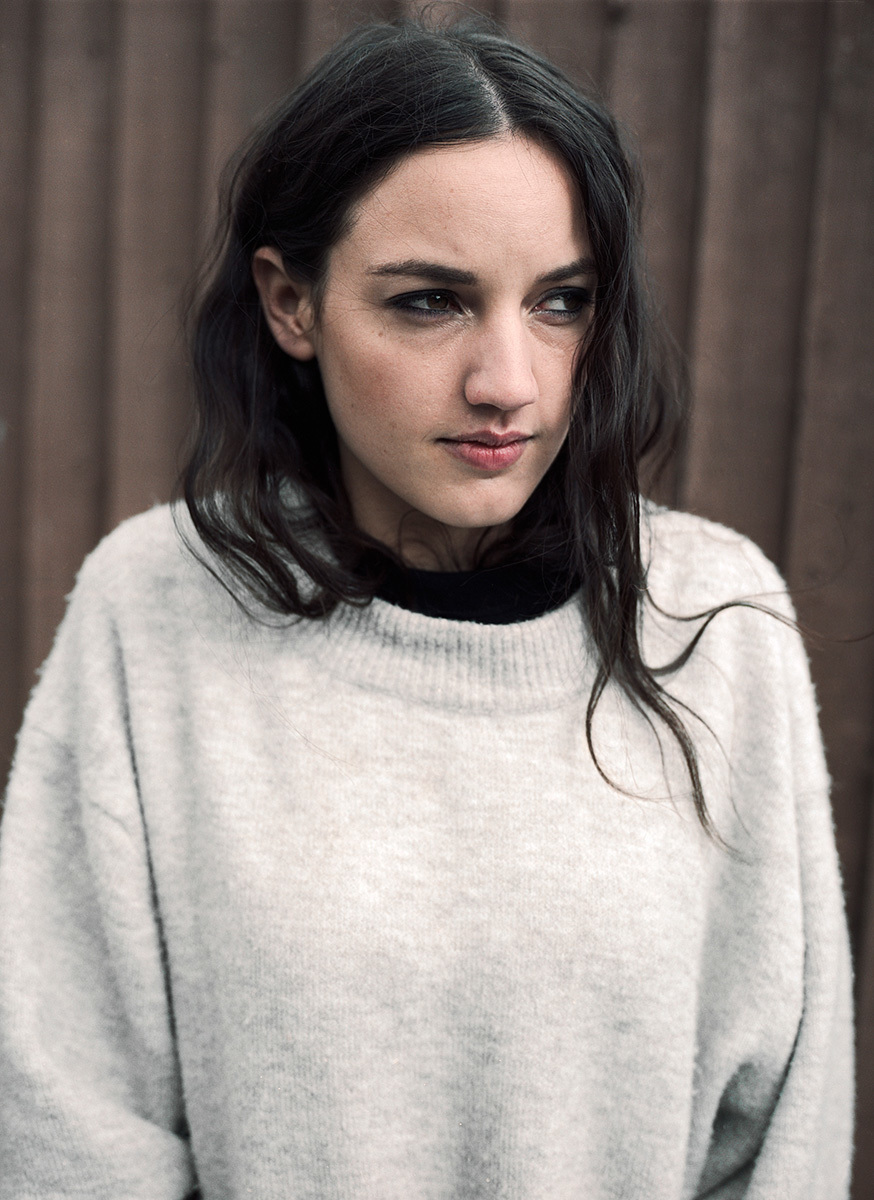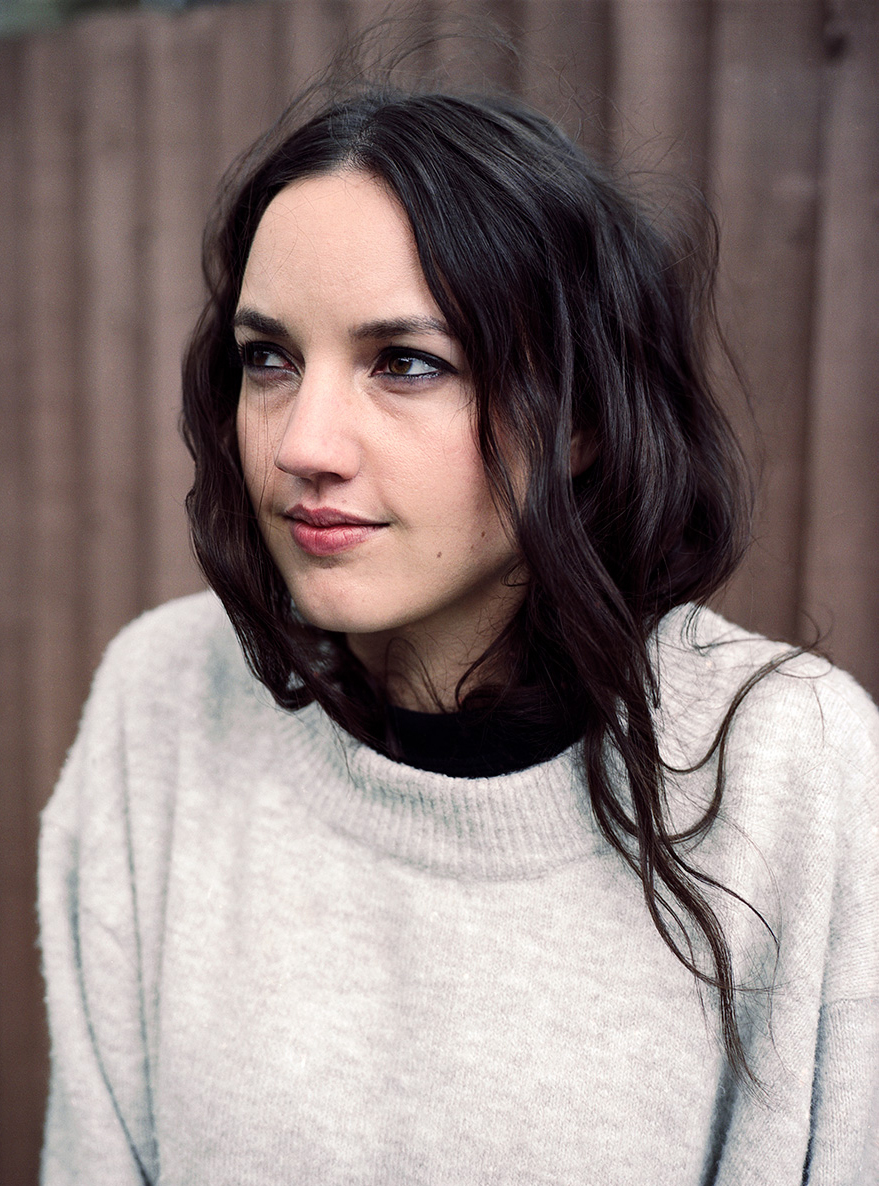25-year-old Jeanne Gallous, known by her stage name Jain, is truly a citizen of the world: born in the South of France to a half-Madagascan mother and French father, the singer, songwriter and producer’s multicultural upbringing is immediately apparent in her music. Having lived in the Republic of Congo, Abu Dhabi, as well as Paris, Jain’s optimism and energy embodies the sound she has been crafting since a young age, layering a range of musical elements from around the world: Congolese beats, Afropop, French electro and reggae.
When did you first start making music?
I started when I was seven years old in the South of France. I was learning how to play the drums with a professor, and then in Dubai I took up an Arabic percussion called Darbuka when I was nine. I started writing my own songs when I was 16 and living in the Congo.
You moved from the South of France to Dubai when you were nine years old, then to the Republic of Congo, then to Abu Dhabi and finally back to France. How would you say all of the cultures you experienced in each of these places affected your sound?
All of these places have really inspired me to make music from day one and I’m certain that I may not have made music if it wasn’t for having travelled as much as I have. Music has always been my safe space, somewhere I could put everything I wanted. It’s hard as a teenager to keep moving from one country to another — you haven’t got a lot of friends, you have to be in a new high school every time. So music was always the thing I could always bring anywhere and I’ve always felt at home making it.
You’ve mentioned in the past how living in Pointe-Noire in the Congo was a turning point in your creative life. Why was this?
While I was living there, I had some demos that were just of guitar melodies and me singing that I really wanted to record because I was afraid I’d forget them. A friend of mine was making rap music and he introduced me to a producer called Mr Flash. Mr Flash showed me how to record myself at home, how to make beats, how to make my own home studio, all of those kinds of things. He gave me a software called Fruity Loops and with that, I put my songs on MySpace and met my producer of today who helped me with my first album. That’s how it all began for me really.
You often wear a black and white collared dress while performing, what does this symbolise?
It’s very important for me to have a costume on stage while performing to really separate my everyday life and my artistic life. The black and white outfit symbolises an absolute contrast. I find it funny coming on stage in that dress to then start performing electronic music, I see people’s faces and they’re sometimes surprised (laughs). When I have the dress on, I feel focused and ready to perform.

When was your first introduction to electronic music?
I remember when I came back to Paris at around 19, I still didn’t know about French electro and then one day I saw the duo Justice play. It was the first electronic show I’d ever watched and I was amazed — there were only two of them on stage and yet all of the crowd jumped around and danced altogether. This experience is the reason for why I incorporate electronic music in my own sound, I want to ignite the dancing instinct in people.
How does your song-making process go?
It really depends, sometimes it can just be a melody that I have in my head and then other times I study a track on my computer and I find a melody in it, then add lyrics to it. It really does depend, but most of all it’s important for me to have no rules about how I write music because I want to remain free to explore my way of writing.
The title of your latest album Zanaka translates to child in the Malagasy language. Why did you decide to name your album this?
I wrote the album between the ages of 16 and 22 and everything I touch on in the album is from my childhood — the Congo, Abu Dhabi, all of the places I lived in from a very young age. It’s my own story.
It feels and sounds like a very optimistic record. Is there a specific message you’re hoping to send out to each listener?
I want people to hopefully understand how universal music is and how it is one of the only things that people love around the world that rarely brings negativity. For me, music is very much about sharing optimism. It’s about dancing with your friends, being joyful. I really want listeners to feel optimistic. We don’t live in easy times today and so I just want to tell them that I’m here and if you think like me, if you feel like me, if you like music like me then anyone from all around the world is welcome. Life is too short, we have to enjoy it and that is why music is so beautiful. It can truly create a sense of solidarity and unity.
Your track Heads Up stands out as particularly poignant today given the political landscapes across the world, especially with the lyrics ‘Where fear’s not a leader, where open mind is stronger, life is for lovers.’ What was the inspiration behind this?
It responds to a lot of things happening these days. When I wrote it I was back in Paris, and I was scared of some of the things I saw there on an everyday basis — racism in particular. I just didn’t understand why it exists. So I just wanted to make a song about people that were feeling the same way I was, and Heads Up is that.
Who are some of your icons?
There are different qualities I appreciate for a number of women including my mother, Madonna, Nina Simone, Miriam Makeba and Frida Kahlo. Madonna for the way she’s not scared of anything and the way she tries new things all the time, her ability to push boundaries. Miriam for her fight and her beliefs — she fights for what she believes in while continuing to perform music all around the world, continuing to do so even when she was expelled from her own country. Nina Simone’s soul, vibe, voice, and that feeling she creates when you listen to her. Frida Kahlo because I love her work, her strong nature and most of all, her dedication to being an artist.
What do you hope to inspire in others who may look to you as an inspiration?
Hopefully to do what you want to do — it’s all about doing what you want to do. Being independent, working hard, being kind to yourself and not being ashamed of anything. If you’re a woman and you want to be an artist, don’t ever consider the fact you are a woman as a problem, don’t explain yourself as a female artist — you are an artist. Full stop.
Credits
Text Sarah Roselle
Photography Alec McLeish
